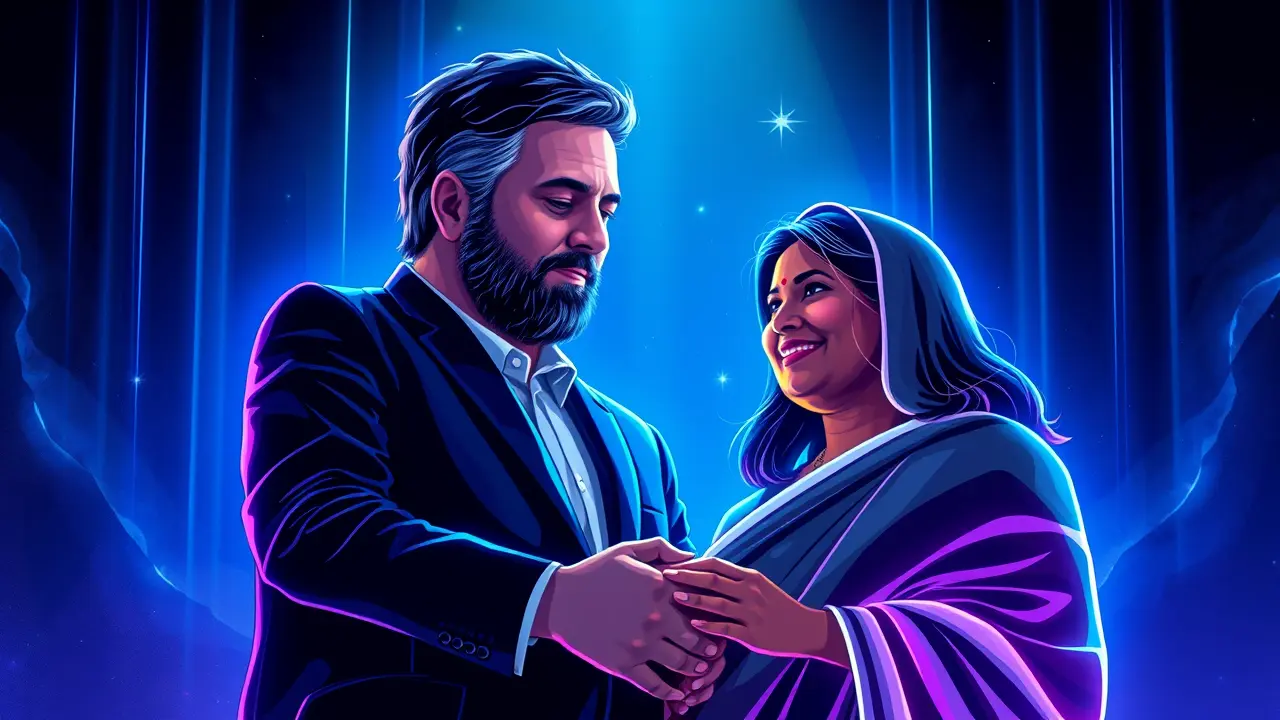
Politicsgovernments & cabinetsLeadership Transitions
Vance Defends Hope for Hindu Wife's Conversion to Christianity
RO
Robert Hayes
1 day ago7 min read
The political landscape witnessed a remarkable theological skirmish this week as US Vice-President J. D.Vance, a figure whose journey from 'Hillbilly Elegy' author to the second-highest office in the land has been marked by profound personal transformation, mounted a vigorous defense of his publicly stated hope that his wife, Usha Vance, would convert from Hinduism to Christianity. This is not merely a private marital matter but a public litmus test for the intersection of faith, identity, and political power, echoing historical tensions that have shaped empires and toppled governments.Vance, a fervent Catholic who himself underwent a conversion in 2019—a pivotal moment he often frames as a cornerstone of his political identity—addressed the controversy during a Turning Point USA event at the University of Mississippi, an institution itself no stranger to the complex legacies of American culture wars. The event, ostensibly held to honor the right-wing activist Charlie Kirk, became a forum for a deeper, more contentious debate when Vance was queried on the practicalities and spiritual dynamics of his interfaith marriage.His response, a candid admission of his evangelical hope for his wife's conversion, was met with the predictable furor of a digitally inflamed public square. Yet, Vance's subsequent rebuttal on Friday, wherein he characterized the criticism as reeking of 'anti-Christian bigotry,' was a masterclass in political jujitsu, reframing a personal religious aspiration into a broader cultural battle.This maneuver invites a sober analysis parallel to historical precedents; one might recall the political ramifications of religious allegiance in the courts of Tudor England, where the personal faith of a monarch could dictate national policy and ignite decades of conflict. Vance’s position, while personal, is inextricably linked to his role as a standard-bearer for a particular strand of conservative American politics that increasingly views religious identity as a public and political badge of honor.To understand the full weight of this episode, one must consider the delicate fabric of America's pluralistic society, a experiment built on the principle of religious freedom now strained by the forces of political and theological tribalism. The Vice-President's comments force a uncomfortable question: in a nation where a Hindu prayer opened a session of Congress, can the leader's hope for his family's spiritual uniformity coexist with the nation's foundational ethos? Expert commentary from theologians and political strategists would likely be divided; some would see Vance's hope as a protected, sincere tenet of his faith, while others would warn of the perilous message it sends to millions of non-Christian Americans about their place in a vision of America championed by its ruling class.The consequences are multifaceted, potentially energizing his evangelical base who see in him a courageous defender of the faith, while simultaneously alienating moderate voters and interfaith families who see such statements as exclusionary. The narrative is further complicated by the global context, where India, the world's largest democracy and a key US strategic partner, watches as one of its predominant faiths becomes a talking point in American domestic politics.This is not a simple news item; it is a prism through which we can observe the ongoing negotiation between private belief and public duty, a drama as old as politics itself, now playing out on the modern stage with J. D. Vance as a central, and unapologetic, protagonist.
#featured
#JD Vance
#religion
#conversion
#Christianity
#Hinduism
#interfaith marriage
#US Vice-President
Stay Informed. Act Smarter.
Get weekly highlights, major headlines, and expert insights — then put your knowledge to work in our live prediction markets.
Comments
It’s quiet here...Start the conversation by leaving the first comment.
© 2025 Outpoll Service LTD. All rights reserved.